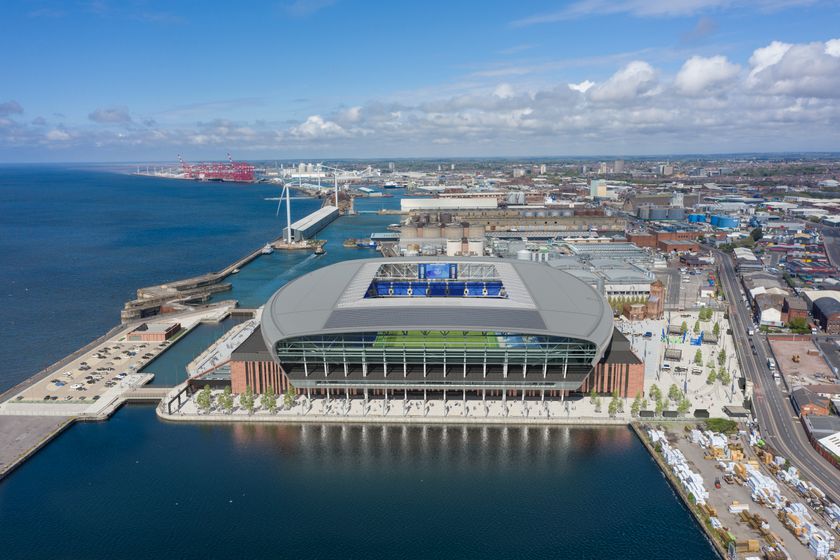Who are Ludogorets? Meet the Bulgarians with a chain-smoking penalty hero and less history than Stevie G
A club with 13 years of existence and a Romanian nicotine nut await Liverpool upon their long-awaited return to the Champions League, writes Metodi Shumanov…
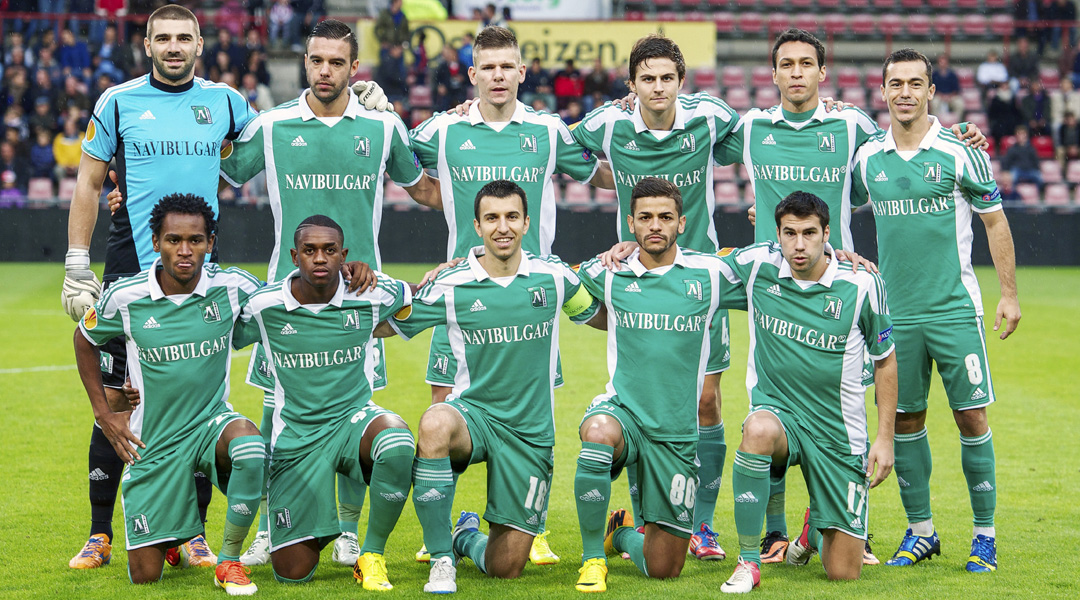
Who are they?
September 16 will be a special date for Liverpool’s supporters, with their club returning to the Champions League after a five-year absence – but it will be twice as special for fans of Ludogorets.
The Bulgarian champions will make their official debut in the group stage, becoming only the second team from Bulgaria to reach this phase of the tournament. The first, the Levski Sofia side of 2006/07, didn’t win a single point from their six matches, so the initial aim for Ludogorets will be to avoid defeat in at least one of their games with Liverpool, Real Madrid or Basel.
The name Ludogorets literary translates as “The Wild Forest”. The club, which was founded as recently as 2001 (almost three years after Liverpool captain Steven Gerrard made his debut for the Anfield club), are based in the small town of Razgrad in the north of the country. With 32,500 inhabitants, the population of the town wouldn’t even fill the national stadium Vassil Levski (capacity: 43,000) in the capital Sofia, where Ludogorets will play their home games in the group stage.
In 2011, Ludogorets were promoted to the Bulgarian First Division and have since made history by winning three successive titles. The team owes its progress mostly to the businessman Kiril Domuschiev, who started investing in the club mainly because his pharmaceutical company was based in Razgrad. He provides the annual club budget of €5 million, which is reportedly the second smallest in the Champions League this year after that of Belarusian outfit BATE Borisov (€4.5m).
Strengths
Since their rise in 2011, Ludogorets haven’t sold any of their key players, which means they have been playing with largely the same squad for nearly three years. This gives them great cohesion.
Get FourFourTwo Newsletter
The best features, fun and footballing quizzes, straight to your inbox every week.
Last season, the team gained solid European experience by reaching the last 16 of the Europa League. Ludogorets started that European campaign in the second qualifying round of the Champions League, and ended up playing 16 matches across the two competitions - a record for a Bulgarian team for one season.
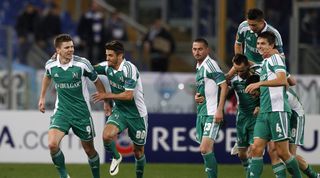
Weaknesses
In some of the Bulgarian champions' European games they conceded late goals due to lack of concentration in the defence. In 2012 the team lost 3-2 to Dinamo Zagreb after allowing the Croatians to score in the 96th minute. A year later Ludogorets were defeated by Slovan Bratislava with two goals in the dying minutes (the second after a penalty in added time), even though the Slovakian team were down to 10 men.
After that game, owner Domuschiev sacked coach Ivaylo Petev and replaced him with Stoycho Stoev. This summer, the scenario turned out to be the same – Ludogorets showed some unconvincing performances in Europe, including a 1-1 draw with F91 Dudelange from Luxembourg, and the coach was fired. Although his successor Georgi Dermendzhiev managed to reach the group stage, these constant coaching changes have their influence on the team environment.
The gameplan
The usual formation of Ludogorets is 4-2-3-1, which could be reshaped to 4-4-2 if they fall behind in a match. The attack is led by the Slovenian forward Roman Bezjak, who finished as the third-highest goalscorer in last season’s Europa League, netting six times. Given their successful visits to Partizan Belgrade (1-0), PSV Eindhoven (2-0), Dinamo Zagreb (2-1) and Lazio (1-0), it’s fair to say the Bulgarian champions are more suited to playing away from home.
Sitting compactly in their own half and waiting to hit their opponents on the counter-attack suits their players perfectly, especially their Dutch right winger Virgil Misidjan, who is particularly rapid.
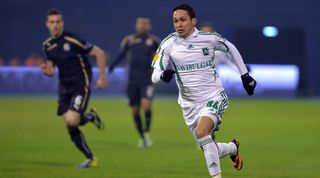
Key player
Brazilian playmaker Marcelinho dictates the playing rhythm of Ludogorets. He is the man for the creative solutions, although sometimes the team depends on him a little too much. If he isn't in good form, the performance of the whole team suffers.
Marcelinho takes all the important free-kicks and it is not unusual for him to push up and act as a central forward who finishes the attacks of his team. Signed for a bargain €120,000 in 2011, the player is now valued at €3m 25 times his initial price.
The Brazilian is one of the 18 foreigners in the Ludogorets squad. He is joined by four of his compatriots, as well as representatives from Portugal, Colombia, Finland, Slovenia and even Madagascar.
Famous for…
Their club mascot – the eagle Fortuna. Named after the Roman goddess of luck, the bird was bought shortly after Ludogorets played Lazio in the Europa League. The club owner Domuschiev came up with the idea during the game at Stadio Olimpico in Rome, while he was watching the flight of Lazio’s famous eagle Olympia.
Even though one century separates the foundations of the two clubs, they share a common nickname – The Eagles. Since its arrival in Razgrad in March, Fortuna has been present at Ludogorets’ most important games in the Bulgarian championship, as well as in Europe.
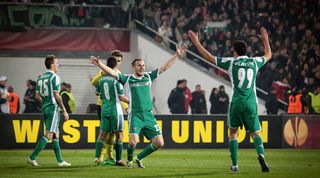
Club legend
For a club with a 13-year history it's difficult to have a player with legendary status, but if there is an idol among the fans in Razgrad it should be Cosmin Moti. The Romanian defender was the hero of the second play-off game with Steaua Bucharest, when Ludogorets won on penalties and reached the Champions League group stage.
Two minutes before the end of the extra-time, goalkeeper Vladislav Stoyanov was sent off and, because Ludogorets had already made all three substitutions, Moti was forced to stand in between the sticks. Not only did he save two penalties, but also scored one himself.
The owner Domuschiev promised to name the new stand of the club stadium in Razgrad after Moti and gave him a “lifelong” contract. A few days after his inspirational performance, the Romanian became an honorary citizen of Razgrad. Not bad at all for a player whose boss at former club Dinamo Bucharest once said wouldn’t succeed in football due to smoking three packs of cigarettes... per day.
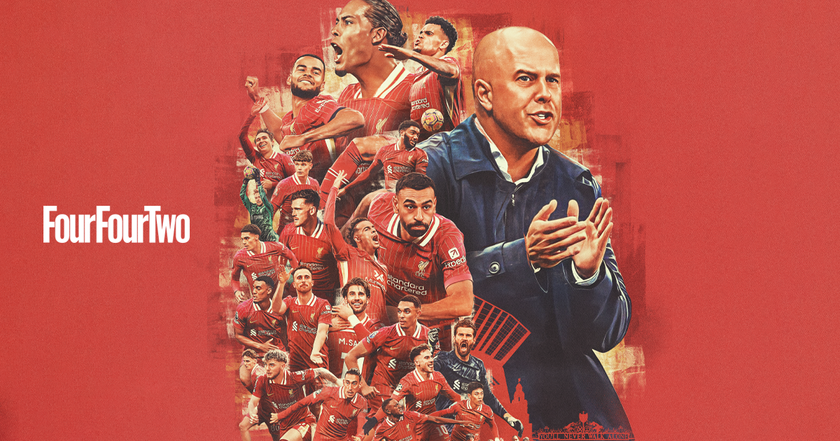
‘If Xabi Alonso had wanted the Liverpool job, Arne Slot might still be in Rotterdam' Respected writer and Liverpool fan Tony Evans provides the inside story of the quest to replace Jurgen Klopp and the shocking factor no one expected
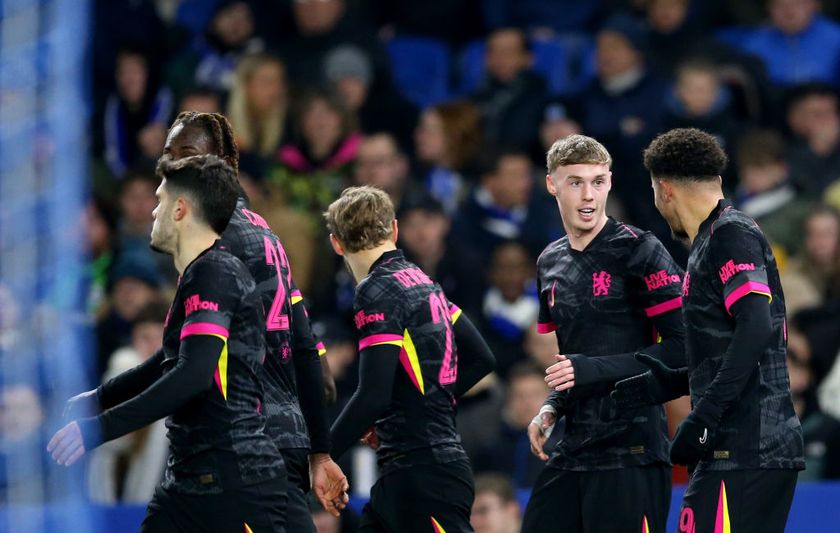
Chelsea and Enzo Maresca have three major problems they must solve after crashing out of the FA Cup with alarm bells now ringing
